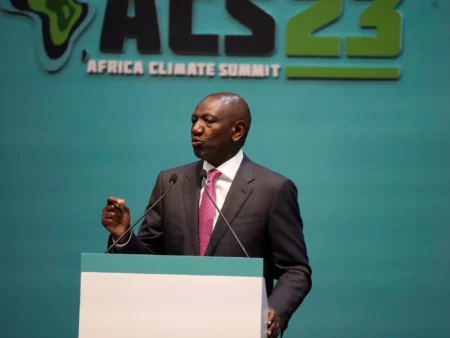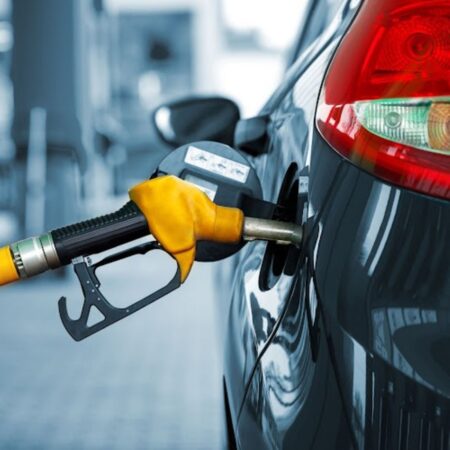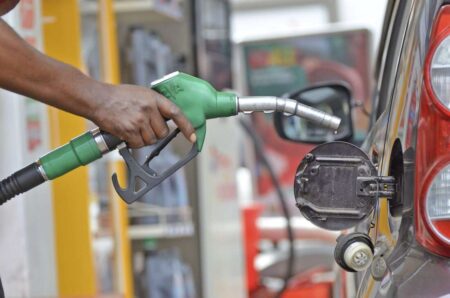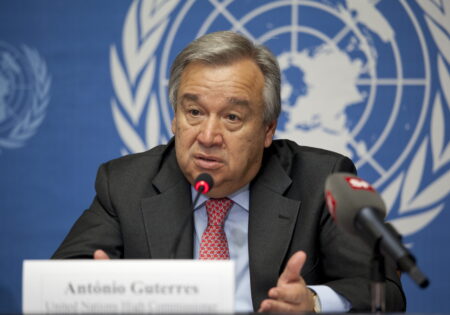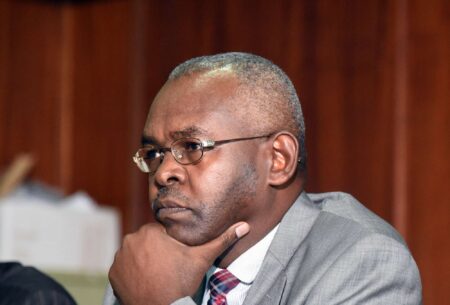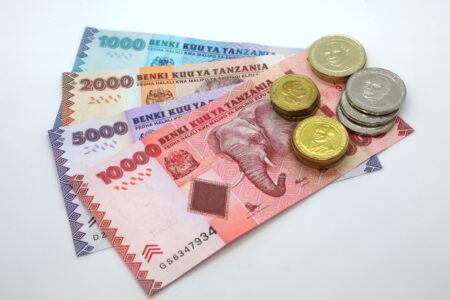- Africa’s Green Economy Summit 2026 readies pipeline of investment-ready green ventures
- East Africa banks on youth-led innovation to transform food systems sector
- The Washington Accords and Rwanda DRC Peace Deal
- Binance Junior, a crypto savings account targeting children and teens debuts in Africa
- African Union Agenda 2063 and the Conflicts Threatening “The Africa We Want”
- New HIV prevention drug is out — can ravaged African nations afford to miss it?
- From banking to supply chains, here’s how blockchain is powering lives across Africa
- Modern railways system sparks fresh drive in Tanzania’s economic ambitions
Browsing: inflation
A new chapter is being written in the vast expanse of Africa, where ancient civilizations once thrived and folklore has been passed down through generations. This chapter speaks of a financial revolution, a transformative movement that promises to redefine the continent’s economic landscape. At the heart of this transformation is the SRS token, a groundbreaking innovation by the Humanity Protocol poised to usher in an era of decentralized prosperity.
A considerable gap exists between symbol and substance regarding an African climate change approach. Foreign leaders often nod to how Africa accounts for only four per cent of global emissions but bears the brunt of the devastating climate change effects. Rising temperatures, extreme weather conditions, and ecosystem disruptions threaten millions of Africans’ livelihoods.
For many communities across the continent, the climate threat is already existential. With 18 per cent of the global population, Africa has 16 of the 20 countries most vulnerable to climate change, according to Notre Dame Global Adaptation Initiative.
Russia’s invasion of Ukraine in February 2022 threw oil and gas markets into disarray. Consequently, the world experienced the first real global energy crisis during the uneven economic recovery from the COVID-19 epidemic. Russia’s inclusion in the OPEC+ group has hampered international attempts to manage the situation. This has made it harder to handle the significant inflationary effects of rising global fuel prices, particularly in developing nations.
Global fuel prices have risen exponentially in the last few months. The rise is hugely significant, as it has seriously aggravated the global cost-of-living crisis. African economies have particularly been on the receiving end. The continent has suffered from disrupted supply chains and a slowdown in the global economic outlook. Thus, rising energy costs complicate matters even further.
For many Kenyans, life was unbearable during former President Uhuru Kenyatta’s reign. But just one year after President William Ruto came to power, life is getting more onerous. High taxation, the depreciation of the shilling against the dollar, and record-high fuel prices have highlighted the last few months. This has painted a grim picture of Kenya’s future and shattered citizens’ hopes for economic reinvigoration.
On September 14, 2023, the Energy and Petroleum Regulatory Authority (EPRA) announced record-high fuel prices for the September-October regulation cycle. A litre of super will now retail at Kes 211.64, diesel at Kes 200.90, and Kerosene at Kes 202.61. This represents an increase of Kes 16.96, 21.32, and 33.13, respectively, in the new prices announced last midnight.
Financial knowledge remains paramount in an era in which increasingly complex financial products have become readily available to many. Governments in different countries have put more effort into expanding access to financial services. Consequently, the number of individuals with bank accounts and access to credit products is increasing.
Financial literacy remains crucial to personal and economic empowerment, enabling people to make sound financial choices and manage their finances effectively. Africa suffers from a significant shortage of financial literacy, which hinders its economic growth and development.
However, integrating cryptocurrencies with conventional financial systems becomes increasingly essential as they become more commonplace. This presents several obstacles to overcome before cryptocurrencies can realise their full potential. For instance, traditional institutions may be hesitant to work with cryptocurrencies due to concerns about money laundering and other illicit activities. Moreover, the technical difficulty of integrating cryptocurrencies with existing banking systems can prove intimidating.
xternal and domestic economic shocks disrupted Sierra Leone’s post-pandemic recovery, exacerbating existing macro-fiscal vulnerabilities and plunging Sierra Leone into a severe economic crisis. In Sierra Leone’s presidential poll today, the citizens will look to choose the best promise for an economic rebuild.
The United Nations (UN) has called for major reforms for two institutions considered key players in the new world order. Antonio Guterres, the UN secretary-general, is pushing for major changes in the IMF and the World Bank.
According to Guterres, the International Monetary Fund has profited the rich nations at the expense of the developing ones. The UN secretary-general describes the response by IMF and the World Bank towards the COVID-19 pandemic as a “glaring failure” that left most developing nations significantly indebted.
On 15 May, President William Ruto nominated Kamau Thugge as the new governor of the Central Bank of Kenya (CBK). If the Senate and the National Assembly ratify the appointment, Thugge will begin his first term as the CBK governor in mid-June. He will replace the incumbent Patrick Njoroge who assumed office as CBK governor in 2015.
The nomination of Thugge comes at a pivotal time for the Kenyan economy. Kenya’s inflation remains high at almost 8 per cent. The Kenyan shilling has also hit all-time lows against the US dollar. Thus, the monetary policies from the CBK will most likely come in handy in the coming months. But what makes Thugge the perfect fit for the crucial role of Kenya’s top banker?
The Monetary Policy Committee (MPC) which most recently held its ordinary meeting on 22nd May 2023 has approved the toughened stance. The MPC resolved that; “Given the domestic and global economic conditions, the Bank is to sustain the implementation of less accommodative monetary policy in May and June 2023,” in other words, Tanzanians should tighten their belts. Some more. This policy stance will ensure that inflation in Tanzania remains within the target of 5.4 percent in the remainder of 2022/23.”






